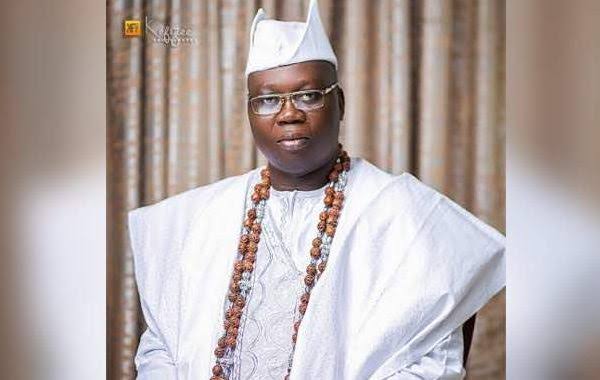
After 25 years of existence, National Coordinator Oodua Peoples Congress (OPC), Otunba Gani Adams, said the socio-cultural group may have to spread its tentacles to partisan politics, The Nation reported.
The move, according to him, is geared towards liberating the Yoruba nation from the shackles of poverty, oppression and other injustice that has been her lot over the last years.
Adams, who recalled how OPC started with nine members at Palm Avenue in Mushin in 1994, supposedly to liberate the Yoruba nation and restore the mandate of late business mogul cum philanthropist Moshood Kashimawo Abiola who won the 1993 election adjudged freest and fairest in the country’s history, lamented that that struggle has achieved little so far despite that it claimed over 2,500 martyrs.
Adams, who is the 15th Aare Ona Kakanfo of Yorubaland, spoke on Thursday at the 25 anniversary of OPC in Lagos.
He lamented that the ultimate aim of OPC, which is the call for restructuring, has been repeatedly defeated, leaving the socio political organisation with little or no choice than to restrategise so as to improve the living standard of its over 6million membership spreading across the nation, especially the Southwest.
He said: “Without mincing words, let me say categorically that the next few months will determine whether we will remain politically neutral or partisan.
“Do not forget that what gave birth to OPC was struggle for the revalidation of June 12, 1993 election.
“From there, we went to demand for the total restructuring of the country.
“The most recent irreducible for those who have followed this restructuring is for government to implement the recommendations of the National Conference convened by administration of Goodluck Jonathan.
“It is in light of this that I say that in the next few months, if there is no tangible evidence that this country will be restructured, then OPC will become partisan.
“We are still keeping the details to our chest. However, with a membership of over 6 million, even if its members of the legislature at the federal and state levels that we are able to produce, we will be in position to influence what happens in government at all levels. Time for ‘siddon look ‘ is over.’
Adams, who also bemoaned the increased wave in kidnapping and ritual killings across the Southwest, expressed confidence that the six million standing army of OPC is up to the task.
Nonetheless, Adams said the group would continue to use its cultural mileage to negotiate on behalf of the Yoruba, adding that it might then end up adopting militancy as the last option should all entreaties fail.
He expressed happiness that OPC has grown in leaps and bounds with Oodua Progressive Union as an offshoot and presence in 87 countries to protect the interest of Yoruba in diaspora.
Adams views were supported by Pa Ayo Adebanjo a member of NADECO, spokesman of Afenifere, Yinka Odumakin, his wife Joe Okei Odumakin, Comrade Femi Aborishade, and a professor of Political Science Tunde Babawale.
Babawale who was guest speaker, urged OPC to team up with organisations of like minds so they can, on concert, push for restructuring.
He also admonished OPC to adopt diplomatic means of engagement in its agitation, adding that militancy should be a weapon of last resort.
“For OPC, it is not yet uhuru. You can only stop your agitations once it achieves democratic governance, promotes social justice, economic equity, and the restructuring of Nigeria to make it a federation in word and in deed,” Babawale said.
Pa Adesanya recalled how the birth of OPC during the June 12 saga, suddenly changed the misconception that the Yoruba were cowards.
He said: “It was a time of a seeming hopelessness. It was a time other tribes felt Yoruba would simply fold their arms because the mandate of their kinsmen had been taken from them.
“But OPC challenged that impression and today, many have come to acknowledge the true Identity of the Yoruba.”
Odumakin demanded state police to address the myriad of security challenges nationwide.
“It’s about time the Federal Government realised that they can no longer police from Abuja. The country needs state police now,” he argued.
Odumakin continued: “Some have argued that state police will result in armed bandits: but I disagree.
“State police does not mean governors in their respective states will be given the liberty to them into armed thugs. State police will be a body that will be managed by government to ensure insecurity across all localities.”
Joe Okei Odumakin urged the Yoruba nation to establish a hall of fame for the over 2,500 that perished during the June 12 struggle.
Inspector General of Police, who was represented by AIG Adeleye Oyebade Zone X1 Osogbo, noted that owing to the wave of inssecurity nationwide, the police are adopting new strategies by emphasizing more on community policing.
•Source: The Nation
